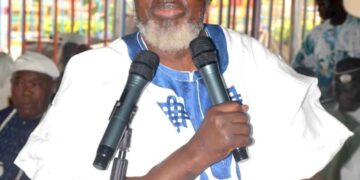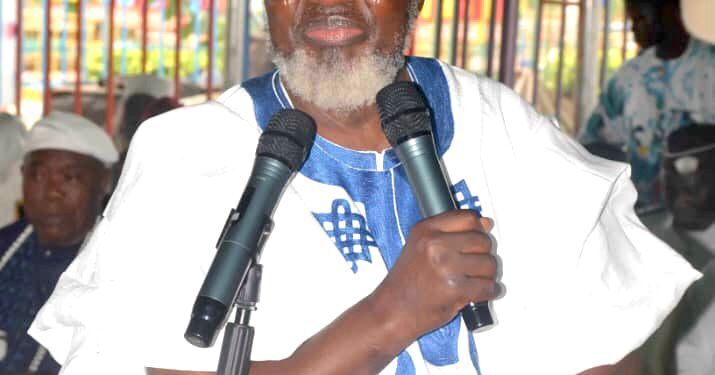Former Minister of Communications, Dr. Adebayo Shittu, has condemned what he described as an attempt to silence Nigerians expressing dissatisfaction with President Bola Tinubu’s administration.
His statement follows the controversy surrounding a Lagos-based corps member, Ushie Uguamaye (also known as Raye), who posted a viral video criticizing the government.
The backlash against her escalated when the Senior Special Assistant to the President on Media and Publicity, Temitope Ajayi, advocated for her expulsion from the National Youth Service Corps (NYSC).
Speaking at the 3rd Ramadan Lecture organized by Eagle 102.5 FM in Ilese-Ijebu on Tuesday, Shittu emphasized that free speech is a cornerstone of democracy and should not be criminalized.
“In a nation of over 230 million people, it is unrealistic to expect everyone to think alike. Differences in opinion are inevitable and should be respected,” he stated.
While acknowledging that some Nigerians may be frustrated with government policies, Shittu maintained that dissenting voices do not equate to a nationwide consensus against the administration.
He criticized calls for severe punitive measures, describing them as excessive.
“Criticism of government policies is not a capital offense. Democracy allows citizens to express their concerns within legal boundaries. These statements are often media-driven and should not warrant extreme disciplinary actions,” he added.
School Closures for Ramadan Unnecessary – Shittu
The former minister also expressed concerns over the recent decision by Katsina, Kebbi, Bauchi, and Kano states to shut down schools for the Ramadan period.
Shittu argued that there is no Islamic basis for such a policy, stressing that even the Quran only mandates businesses to pause for Jum’ah (Friday prayers) and resume afterward.
“Closing schools for Ramadan lacks religious justification and is unnecessary,” he said.
He questioned the effectiveness of the measure, noting that while the intention may be to encourage prayer and worship, many students may not utilize the period as expected. Instead of a blanket shutdown, he suggested that any academic adjustment should only apply to the last ten days of Ramadan, when some teachers and students might observe I’tikaf (spiritual retreat).
“Shutting down schools for an entire month is neither relevant nor justified,” he concluded.

























